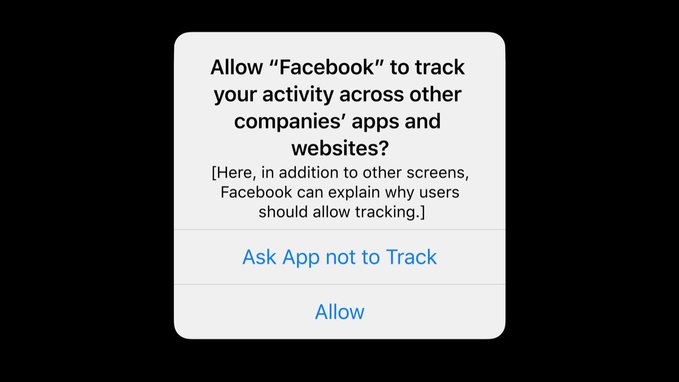Big Tech At CES 2021: Better Privacy Laws And Data Portability Needed

The all-digital CES 2021 hosted a discussion with privacy officials from Amazon, Google, and Twitter. Rajiv Chand from Win venture capital moderated the discussion, and the participants were Keith Enright, Chief Privacy Officer, Google; Damien Kieran, Chief Privacy Officer, Twitter; and Anne Toth, Director, Alexa Trust-Amazon.
Also Read:
Big tech and privacy have been a hot topic throughout 2020 and it is now an agenda that’s being talked about at the CES 2021. After listening to the entire discussion, here are the key takeaways on big tech and privacy at CES 2021.
Data Laws Are In A ‘State Of Uncertainty’

Keith Enright from Google talked about how European laws are changing the tech scenario. He mentioned how the U.S. privacy laws are following the footsteps of Europe. Here’s a statement made by Keith during the discussion.
We are definitely in a period of incredible uncertainty… there are multiple legal regimes, that are in a state of unprecedented flux right now and we’re going to need transparency, cooperation, and collaboration between the public and private sectors.
Keith Enright, Chief Privacy Officer, Google
Damien Kieran from Twitter thinks that user experience will take a hit if privacy laws don’t catch up in time.
Twitter is a place where I want to join the global conversation. If my global conversation is limited to the 27-28 countries in Europe, it’s not a global conversation, it’s a European conversation.
Damien Kieran, Chief Privacy Officer, Twitter
Changes in privacy laws around countries/continents are going to shape user experience by changing the looks, features, and settings of the apps.
Big Tech Wants You To Know More

A little while into the discussion, Anne Toth from Amazon talked about the European laws making people more concerned and more aware of their privacy.
It’s only been two and a half years since GDPR (European privacy law) went into effect, which is such a short period of time. But even in that short period of time… we can agree that consumer awareness about privacy issues has dramatically increased globally.
Anne Toth, Director, Alexa Trust- Amazon
On that note, Twitter and Google also talked about building better on transparency and letting the users know how their data is being used. Damien from Twitter also said that the need for more transparency on the AI and ML front is needed so people can know why companies collect the data they collect.
Mixed Feelings On Federal Privacy Law

When Rajiv Chand, the moderator, asked the participants if there’s a possibility of federal data law in the U.S. in the next two years, they gave mixed responses. Here are the responses from Twitter, Google, and Amazon
I think there are some challenges to getting there… I also think there are some incentives from the international perspective there. For example, the challenges with cross-border movement [of data] likely increase the incentive for the federal government to act.
Damien Kieran, Chief Privacy Officer, Twitter
Google doesn’t think a federal law is a possibility, but is otherwise optimistic of improvements on the data and privacy front.
I do think we’re closer than ever before [to getting a federal law on privacy]. But if anyone looks at the last 20 years and the number of conversations where this question has been teed up, the safer bet was always to say no. In part because privacy is such a bipartisan issue… has always proven challenging and ultimately fatal to this kind of efforts.
Keith Enright, Chief Privacy Officer, Google
Amazon gave a more practical insight into making federal laws in the U.S. and their comparison to those in the E.U.
While we [the U.S.] have three state [laws for privacy], there’s regulation at the city level and the municipal level… Even if we do get an omnibus law, it’s not going to be GDPR [the European law] so there are going to be differences.
Anne Toth, Director, Alexa Trust- Amazon
Biden Administration Has A Lot On Its Plate

Representatives of the tech giants also talked about privacy and how the Biden administration is expected to change certain things. One of the first things that Google brought up is data portability.
Big tech expects E.U. and the U.S. to partner on data portability to let companies maintain a global user experience. Anne from Amazon mentioned that the Vice-President-elect, Kamala Harris, served in California, where most of the big tech is headquartered.
The big tech at CES 2021 is looking at the Biden administration to sort out issues of privacy and data protection. This is pretty much what everyday internet users are also asking for.
Google Appreciates App Tracking Transparency

Google made it clear it is phasing out third-party cookies from Chrome and other services. It also seems to appreciate the direction that Apple is trying to take in terms of app tracking transparency. Here’s the full statement:
I think the direction that Apple wants to proceed in, in terms of protecting users, we’re a hundred percent aligned on. We’re doing things to try to optimize user privacy. I think some of the moves Apple is making are fairly blunt instruments, and we’re seeing some of that play out right now publicly.
Keith Enright, Chief Privacy Officer, Google
With that statement from Google, we might see some big privacy changes and improvements in the Android ecosystem. The company also talked about keeping the internet free and making it more private than it is right now.
Big Tech Cooperation In Privacy

One of the takeaways from the big tech at CES 2021 is that the companies are looking at privacy seriously.
While it is still not enough, it is a start as the companies are participating and talking about privacy now. Privacy laws need to pay more attention to user-data security as well as feasibility for the big tech.
Ultimately, we’ll need cooperation from the users, government, and the companies to make practical laws that protect the customers as well as innovation.
Rounding up
The big tech at CES 2021 is finally talking about privacy and data protection. The road ahead lies in better laws and the government making laws that give both users and big tech a choice.
While localization of the internet is not an option, if privacy laws vary around the world, we’ll have a China-like situation. Governments around the world need to address issues concerning big tech and its users in a synchronized manner. If you’re reading this from a different country, it is possible because the internet is a global platform.






